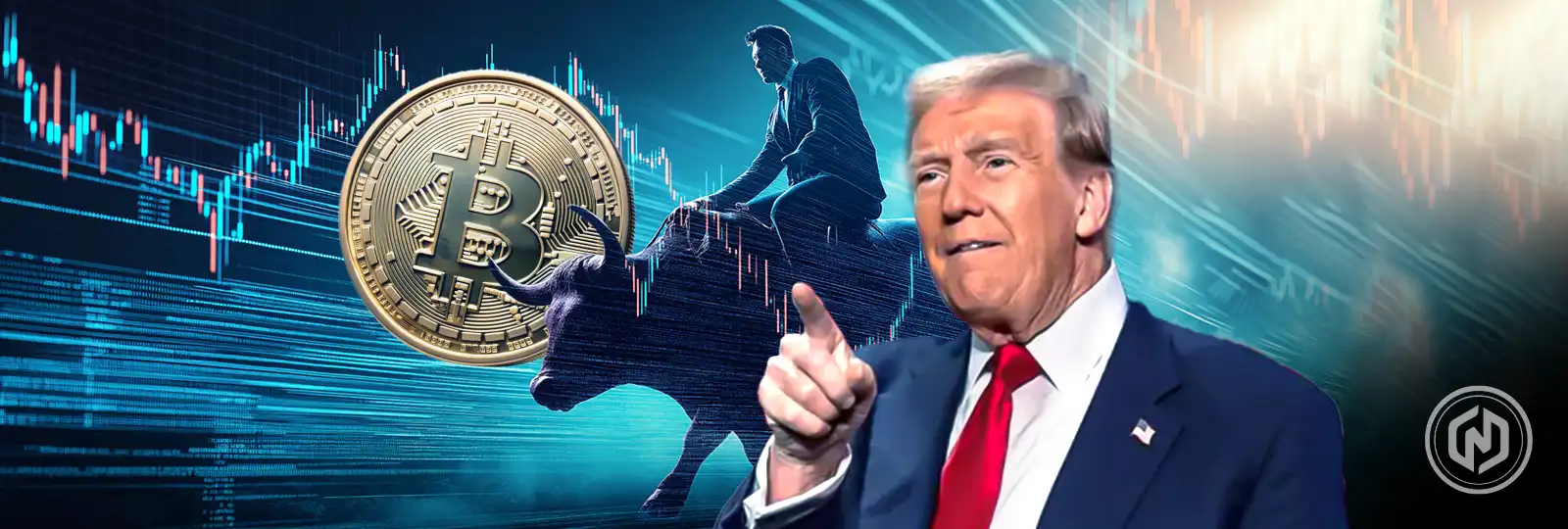Market analysts suggest that the Federal Reserve’s disapproval cannot prevent former President Donald Trump from establishing a strategic Bitcoin reserve in the U.S. This comes after the U.S. Fed Chairman Jerome Powell ruled out any possibility of the central bank acquiring Bitcoin. He stated it is not within the institution’s scope or interest.
Powell vs. Trump on Bitcoin Reserve
Last week, Powell’s remarks, delivered during a press briefing following the Fed’s latest monetary policy meeting, caused significant turbulence in the crypto market. Bitcoin price, which had been climbing earlier in the week, dropped sharply following Powell’s statement.
Predictions for the implementation of a Bitcoin Strategic Reserve (BSR) fell from 40% to 34% on prediction platform Polymarket. The broader crypto market also experienced a 7.5% decline, erasing billions in value.
🚨🚨 BIG BREAKING 👇
Analysts claim the Federal Reserve cannot stop Donald Trump from creating a strategic #Bitcoin reserve in the U.S. pic.twitter.com/AVYrl6f2eX
— Crypto Aman (@cryptoamanclub) December 24, 2024
However, experts argue that Powell’s stance might not hinder Trump’s ambitions to integrate Bitcoin into the U.S. financial framework. A recent report from Wu Blockchain explains that the former president could bypass the Federal Reserve entirely, leveraging executive powers to instruct the Treasury Department to establish a Bitcoin reserve.
How Is That Possible?
The Exchange Stabilization Fund (ESF), overseen by the Treasury, could play a pivotal role in this strategy. Originally designed to stabilize the U.S. dollar and manage financial crises, the ESF currently holds assets like gold and Special Drawing Rights (SDRs).
Analysts note that Trump could issue an executive order directing the Treasury to add Bitcoin to this portfolio. The ESF’s unique structure allows it to operate without direct Congressional budget approvals, granting the President significant control over its activities.
This approach, while swift, has limitations. Executive orders are not permanent and could be reversed by subsequent administrations. Despite its temporary nature, this tactic could allow Trump to act quickly without requiring Congressional approval.
Alternatively, legislative avenues remain an option. Republican Senator Cynthia Lummis has introduced the “U.S. Bitcoin Strategic Reserve Act,” which aims to formally integrate Bitcoin into the nation’s financial system. While this route offers greater long-term stability, passing the legislation would require bipartisan support in a highly divided Congress—a process that could take years.
Despite these challenges, analysts believe the Treasury is the most viable route for implementing a Bitcoin reserve. Powell’s dismissal of Bitcoin suggests the Federal Reserve will not pursue any direct involvement in cryptocurrency markets, leaving the Treasury as the sole pathway for such an initiative.
Trump’s ongoing tensions with Powell, dating back to his first term, further fuel speculation that the former president could take decisive action to circumvent the central bank. As market participants watch for Trump’s next move, the potential establishment of a Bitcoin reserve continues to be a topic of heated debate.
Also Read: Michael Saylor Advice: Buy Bitcoin at Market Peaks

